10 The Benefits of Smart Home Technology: Discover Them Today
Smart home technology brings convenience, energy savings, and improved security. This article explores the key benefits, showing why upgrading your home can be a smart move. In this discussion, we will focus on the benefits of smart home technology, providing valuable insights for homeowners considering an upgrade.
Key Takeaways
-
Smart home technology enhances convenience and control by allowing remote management and automation of home devices, making daily tasks simpler and more efficient.
-
Implementing smart home systems increases security and safety through real-time alerts, monitoring, and integrated smart security features.
-
Smart home technology promotes energy efficiency and cost savings, notably through smart thermostats and efficient lighting systems, while also potentially increasing property value and offering long-term maintenance benefits.
0 Introduction
The allure of smart home technology isn’t just in the futuristic appeal; it’s rooted in the tangible benefits that it brings to daily life. Nearly any home, regardless of age or design, can be upgraded to a smart home, providing residents with unprecedented control over their appliances, thermostats, and lighting – all at their fingertips.
Throughout this exploration, we’ll delve into the ways home automation systems can enhance your life, guided by insights from in-house technicians who are experts in the latest and most recommended products.
Understanding Smart Home Technology
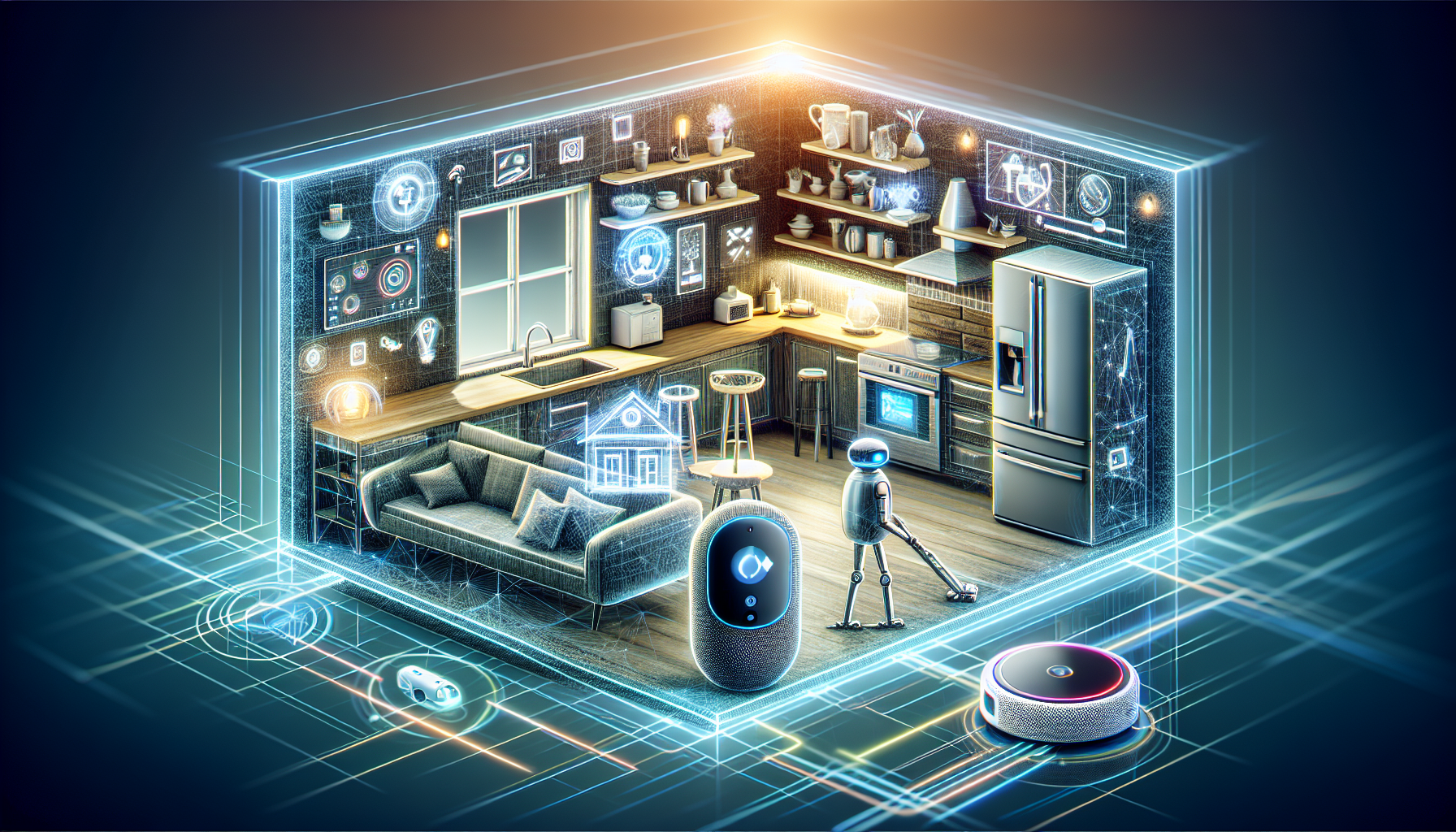
Embarking on the journey of transforming a home into a smart home brings a suite of benefits that range from convenience to cost savings. At its core, smart home technology encompasses the devices and systems that automate and streamline the operations of a home, making everyday tasks simpler and more efficient.
Let’s dive deeper into what constitutes smart home technology and how it can be seamlessly integrated into any living space.
What is Smart Home Technology?
Smart home technology is a symphony of electronic devices working in harmony to create an interconnected and intelligent living environment. Imagine being able to adjust the temperature, dim the lights, or start the coffee maker all from your cozy bed – this is the reality of a smart home. Ranging from smart thermostats to automated lighting systems, these smart home devices communicate through various wireless signals to form a network that can be controlled via a central hub or a mobile device. With the advancement of smart home technologies, the possibilities for a more convenient and efficient lifestyle are endless.
As new devices emerge, platforms like Apple’s HomeKit make it easy to add and manage them within a unified ecosystem, enhancing the smart home experience.
How Smart Homes Work
The foundation of smart homes is the Internet of Things (IoT), which facilitates the connection and data exchange between devices, creating a cohesive and responsive system. From smart doorbells to security cameras, all these devices are part of this expansive network. Stable internet connectivity is essential for accessing various services, while smart home managers like Google Nest and Amazon Alexa act as maestros, orchestrating the control of these devices.
The beauty of smart home systems lies in their ability to automate tasks, learn from your preferences, and adapt to your lifestyle, all while enabling remote access through a single interface.
Convenience and Control
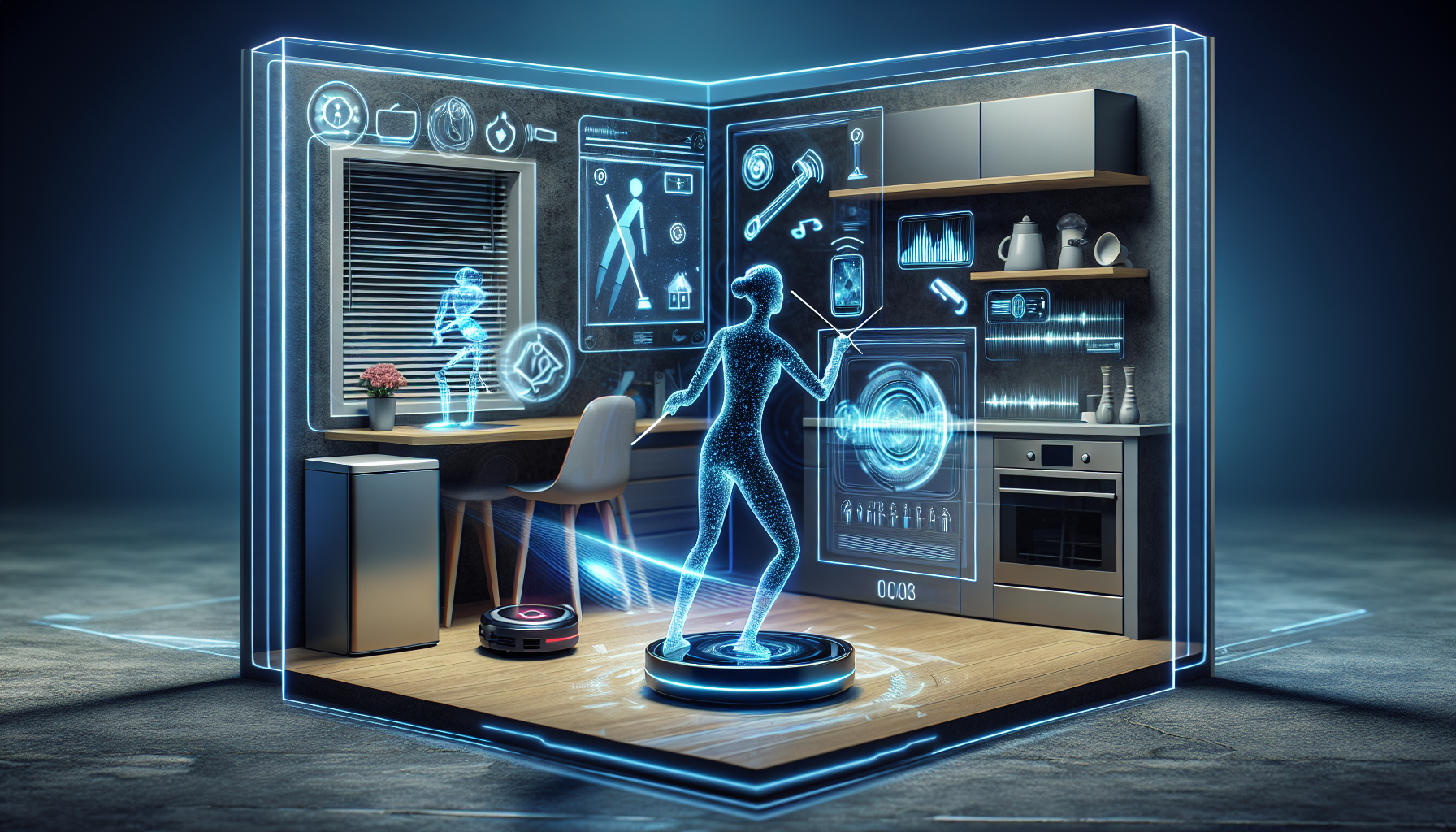
The quintessence of smart home automation is its ability to bring unparalleled convenience and control into the lives of homeowners. With the power to synchronize and automate the operations of connected devices, a smart home not only streamlines routine tasks but also offers a level of control that was previously unattainable.
Imagine the simplicity of managing your entire home’s functionality from a single device, transforming everyday tasks into effortless interactions.
Remote Control of Appliances
The remote control of smart appliances epitomizes convenience in a smart home, allowing you to manage tasks from anywhere at any time. Whether it’s preheating the oven on your way home or checking that all the lights are off while on vacation, smart technology places home management firmly in your hands. From washing machines to refrigerators, these intelligent devices not only respond to your commands but also provide updates and notifications to ensure everything runs smoothly.
Voice control adds another layer of ease, enabling you to give commands to your entertainment system or even lock doors without lifting a finger.
Custom Schedules and Automation
With smart home technology, your home can operate on autopilot, following custom schedules that cater to your lifestyle. Picture your thermostat adjusting to a cozy temperature just as you wake up or your lights dimming to signal bedtime – these automated features redefine living comfort.
The beauty of a smart home lies in its ability to create scenes and presets that align with your daily routines, providing a personalized experience tailored just for you.
Enhanced Security and Safety
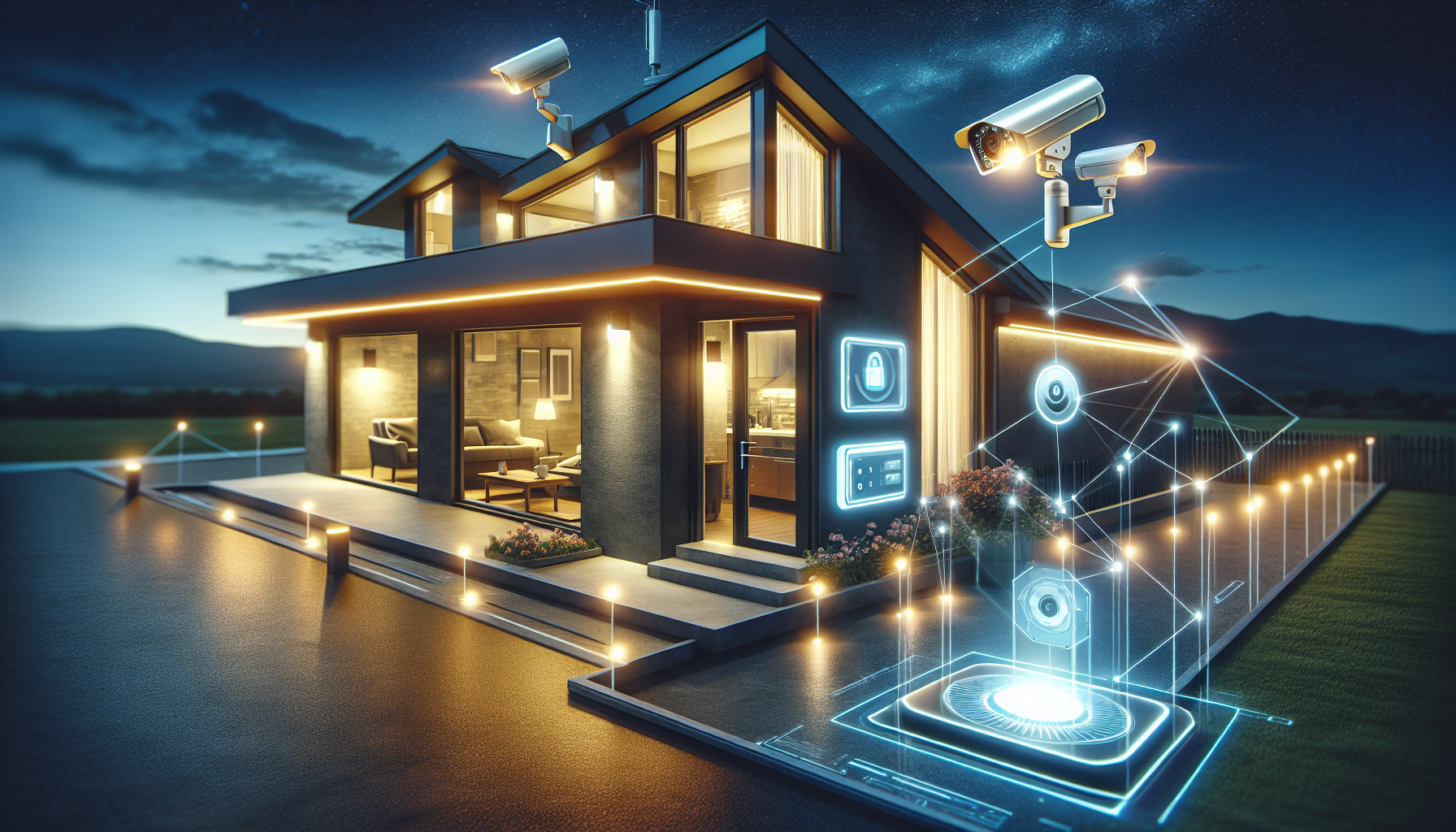
The advancement of smart home technology extends beyond convenience to significantly enhance the security and safety of your living space. With cutting-edge systems that offer real-time alerts and remote monitoring, you can gain peace of mind knowing your home is under vigilant protection around the clock.
Moreover, the flexibility of wireless security systems means they can easily adapt to your needs, whether you’re at home or away.
Smart Security Systems
Smart security systems represent a leap forward in home protection, seamlessly integrating with other devices in your home for a comprehensive shield of safety. Unlike traditional systems, smart security is always on guard, offering continuous surveillance without the need to be manually activated or deactivated. These systems are not only vigilant against intruders but can also respond to a variety of threats, including:
-
Motion detection
-
Cutting of phone lines
-
Fire and smoke detection
-
Carbon monoxide detection
This ensures a robust defense for your home.
Voice command capabilities enhance the user-friendliness of these systems, allowing you to monitor camera feeds or set alarms with ease.
Real-Time Alerts and Monitoring
Real-time alerts and monitoring are hallmarks of a smart home’s security capabilities, providing instant updates on any unusual activity. Whether it’s checking on the kids from the office or ensuring your elderly relatives are safe, these systems offer unparalleled visibility into your home’s environment.
Smart devices can also play a vital role in health safety by:
-
Monitoring air quality
-
Alerting you to potential hazards like smoke or carbon monoxide
-
Detecting leaks
-
Detecting falls
These features add layers of preventive safety, helping to avert crises and providing quick response when needed.
Energy Efficiency and Cost Savings
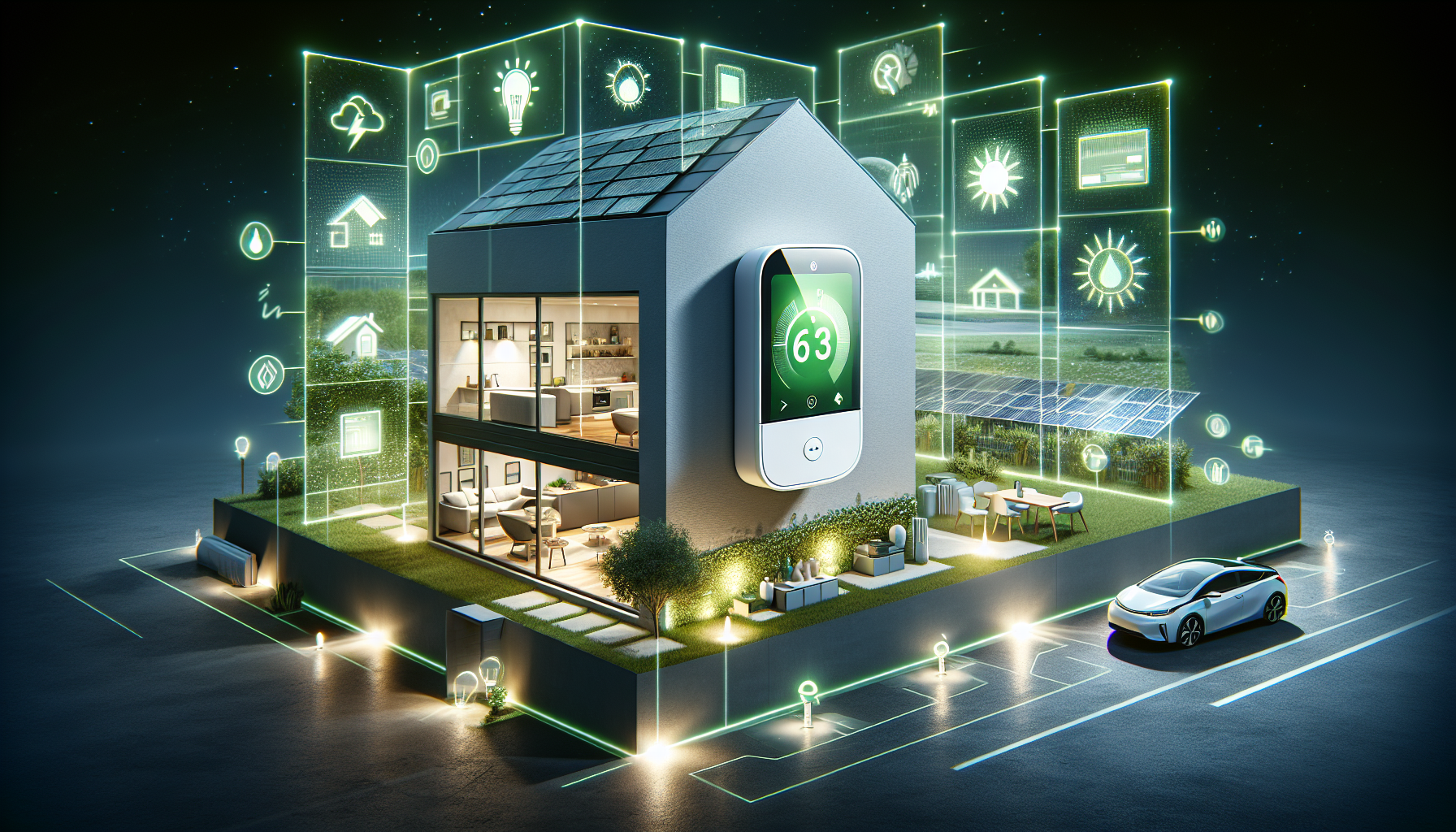
One of the most compelling benefits of smart home technology is its contribution to energy efficiency and the resulting financial savings. By automating and optimizing the use of various home systems, smart technology not only conserves energy but also keeps your utility bills in check.
Let’s delve into how smart thermostats and lighting systems specifically contribute to this eco-friendly and cost-effective approach.
Smart Thermostats
Smart thermostats are at the forefront of energy-saving technology, intelligently adjusting your home’s temperature settings for maximum efficiency and comfort. By learning your schedule and preferences, these devices ensure that heating and cooling are tailored to your needs while minimizing waste, leading to a noticeable reduction in energy bills.
Energy-Efficient Lighting
In the realm of lighting, smart home systems shine brightly with their energy-efficient solutions. Automated controls that switch off lights when they’re not needed and LED bulbs that sip rather than gulp electricity are just a few ways these systems illuminate the path to cost savings and reduced energy usage.
Improved Accessibility
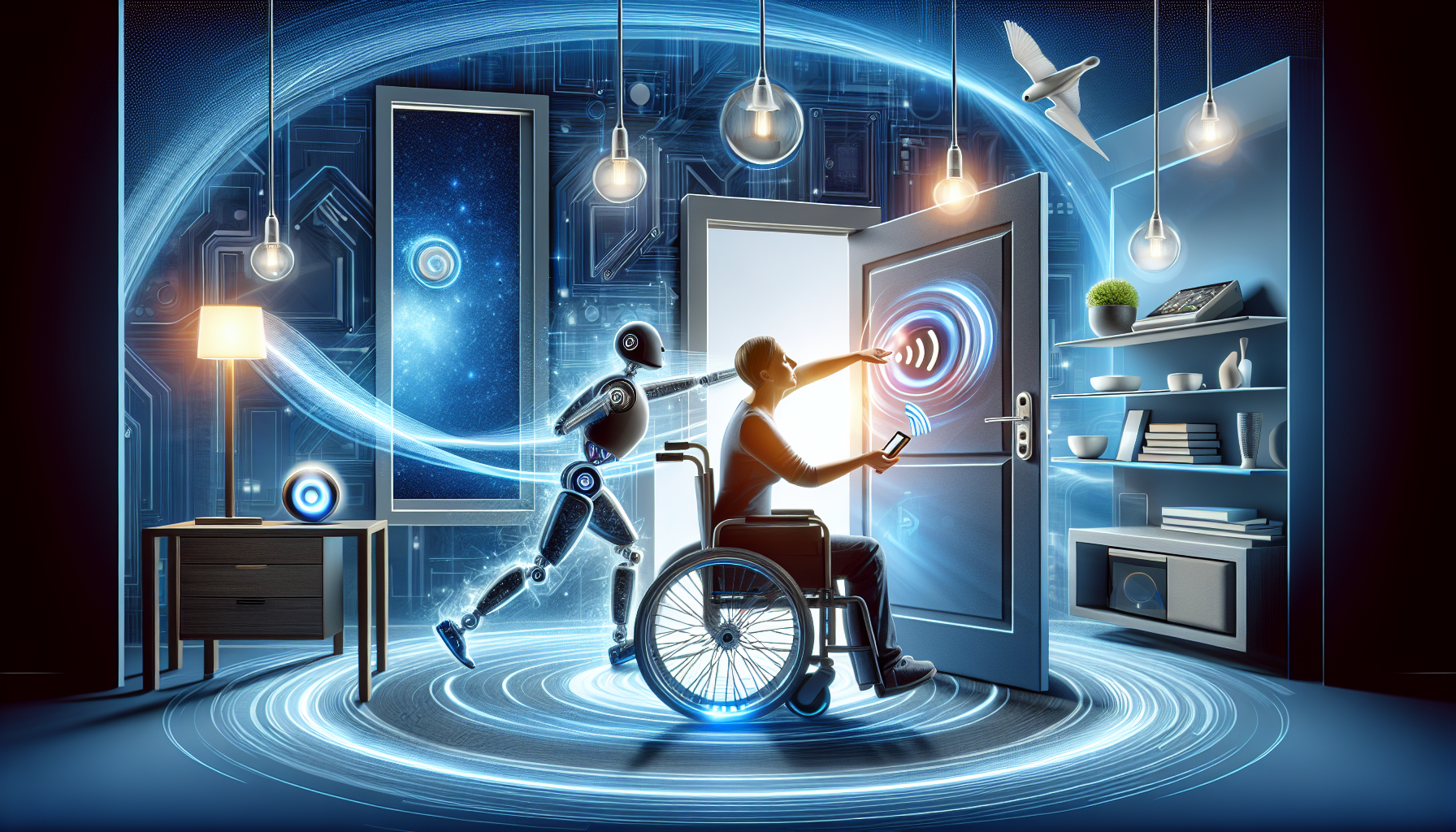
Smart home technology is a game-changer for accessibility, offering innovative solutions that empower individuals with disabilities or limited mobility. By leveraging voice commands and remote control, tasks that once required physical interaction can now be executed with ease, fostering independence and enhancing the quality of life for many.
Voice-Controlled Devices
Voice-controlled devices are the epitome of user-friendly technology, providing a hands-free means to manage your home’s environment. These smart assistants not only understand and execute your commands but also offer personalized experiences through learned preferences and routines.
With the addition of smart speakers, the control becomes even more immersive, allowing adjustments to settings and even media playback without the need for physical touch.
Remote Access
Remote access adds another layer of convenience to smart homes, granting the ability to control devices from any location. This feature is particularly beneficial for the elderly or those with mobility challenges, as it simplifies tasks like adjusting the thermostat or checking security feeds from a mobile device.
A smart thermostat provides an excellent example of smart thermostats, with their capability to tailor temperature settings from afar, ensuring comfort while conserving energy.
Entertainment Integration
Smart homes elevate entertainment to new heights by seamlessly integrating audio, video, and streaming services into a comprehensive media experience. The support for various streaming platforms ensures that your favorite shows and movies are always just a click away.
Let’s delve into the specifics of how smart home entertainment systems and personalized media experiences can enrich your leisure time.
Smart Home Entertainment Systems
Smart home entertainment systems are the heart of a connected home, allowing for the centralized control of media sources and equipment. With systems like Crestron or Control4, homeowners can effortlessly switch between speakers, screens, and media sources using sophisticated control systems that blend hard buttons with touch screens for an intuitive experience.
These systems also include in-wall and in-ceiling speakers that offer exceptional audio quality while maintaining the aesthetic appeal of your interiors.
Personalized Media Experiences
The ability to personalize media experiences is a hallmark of smart home technology. Users can tailor the ambiance to their liking, from lighting to sound levels, creating an immersive environment that reflects individual tastes. Voice assistants are key to this personalization, learning from your habits and offering suggestions that enhance the entertainment experience.
Additionally, the convenience of controlling these settings from apps on mobile devices adds a layer of customization that was once the preserve of luxury homes.
Health and Wellness Benefits
Smart home technology extends its reach into the domain of health and wellness, providing tools and features that help maintain a healthy living environment. Some examples include:
-
Monitoring air quality
-
Tracking biometrics
-
Controlling lighting and temperature for optimal sleep
-
Providing reminders for medication or exercise
-
Offering relaxation and stress relief through music or ambient sounds
These intelligent systems play an increasingly important role in fostering physical and mental well-being.
Air Quality Monitoring
Ensuring a healthy environment within the home is crucial, and smart air quality monitors are up to the task. These devices keep a vigilant eye on pollutants and allergens, providing real-time data and even adjusting air purifiers automatically to maintain optimal indoor air quality.
Health Tracking and Alerts
Smart home technology offers significant benefits for health tracking, including:
-
Alerting users to any deviations from normal health metrics
-
Sending timely reminders for medication and check-ups
-
Playing a crucial role in managing personal health
Increased Property Value
In today’s market, smart home technology is not just a luxury but a strategic investment that can boost your home’s resale value. With the rising demand for homes equipped with modern automation features, integrating a smart home system can significantly enhance the appeal of your property to potential buyers.
Market Appeal
Home automation technologies have become a hot commodity in the real estate market, with buyers increasingly inquiring about features such as high-speed internet and automated blinds. A smart home system not only meets these modern demands but also distinguishes your property in a competitive landscape, heightening its market appeal and desirability.
Investment Returns
Investing in a smart home automation system can be a wise financial decision, as it often leads to competitive bidding among potential buyers. Homes with built-in smart technologies tend to sell faster and for a higher price, as the next owner appreciates the convenience and does not have to invest in these upgrades themselves.
Long-Term Savings and Maintenance
Beyond the immediate perks, smart home technology is an investment that yields long-term savings and simplifies maintenance. By integrating systems like solar panels, these smart solutions can significantly cut energy costs over time. Additionally, proactive maintenance alerts help prevent expensive repairs and extend the life of your home appliances.
Reduced Utility Bills
Smart home systems excel in reducing utility bills by optimizing the operation of lights, heating, and other appliances. Automated features ensure that energy is not wasted, whether by turning off lights in unoccupied rooms or controlling devices based on external conditions. Dynamic tariffs can further enhance savings by allowing the smart system to choose the most cost-effective times to operate certain devices.
Maintenance Notifications
One of the underrated advantages of smart home technology is its ability to provide maintenance notifications. These timely alerts can be a lifesaver, informing homeowners of the need for repairs or replacements before minor issues escalate into major problems, thus saving money in the long run.
Future-Proofing Your Home
Future-proofing your home with smart technology is a forward-thinking move that ensures your living space remains compatible with the latest innovations. As technology evolves, having a home that can easily adapt and integrate new features will keep it modern and relevant for years to come.
Adaptability to New Innovations
The adaptability of smart homes to new innovations is a crucial aspect of future-proofing. With smart wiring and IoT connectivity, new devices can be added to the existing ecosystem with minimal fuss, ensuring your home stays up-to-date with technological advancements.
The gradual upgrade path means that your home can evolve with the times, without the need for extensive renovations.
Staying Ahead of Trends
Embracing smart home technology means staying ahead of the curve and aligning your home with current and emerging trends. As the capabilities of smart homes continue to grow, being an early adopter can set the stage for a living space that’s not just about the present but also ready for the future. Some benefits of smart home technology include:
-
Increased convenience and efficiency
-
Improved security and safety
-
Energy savings
-
Enhanced entertainment options
-
Remote control and monitoring capabilities
By incorporating these features into your home, you can create a more comfortable and connected living environment.
Summary
In conclusion, the journey into the world of smart home technology offers a myriad of benefits that extend far beyond the initial allure of living in a tech-savvy space. From enhanced convenience and security to energy savings and increased property value, the integration of smart home systems touches every facet of home life. As we embrace these innovations, we not only improve our daily lives but also invest in the future, ensuring our homes remain comfortable, safe, and cutting-edge for years to come.
Frequently Asked Questions
Can smart home technology really save me money on my energy bills?
Yes, smart home technology can save you money on your energy bills by optimizing energy usage and reducing waste.
Is it complicated to convert my existing home into a smart home?
Converting your existing home into a smart home is not complicated at all. With the right devices, nearly any home can be transformed into a smart home, and these systems can be upgraded gradually without major renovations.
How do smart homes enhance security?
Smart homes enhance security by offering real-time alerts, remote monitoring, and integrated security systems for comprehensive protection. These advanced features help ensure the safety of your home.
What are the benefits of having a voice-controlled smart home?
Having a voice-controlled smart home offers the convenience of hands-free operation, making it easier for everyone to manage their home environment, particularly benefiting those with mobility issues or disabilities.
Will installing smart home technology increase my property's value?
Yes, installing smart home technology can increase your property's value by making it more appealing to potential buyers and improving its marketability.








